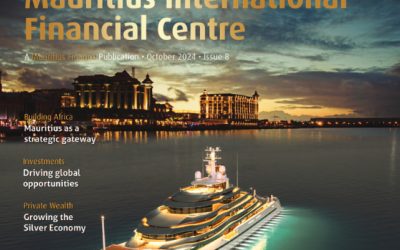The focus on Environmental, Social and Governance (ESG) considerations has traditionally been around the “Environmental” element and in particular concerns around climate change, rising sea temperatures and increased greenhouse gas emissions. Social and Governance issues have arguably been jettisoned to the shadows, an E(SG) afterthought. There are many reasons for this but the fact that companies can no longer just tell stakeholders what good they are doing, (they must now show also show it) appears to be a key driver for the focus on the tangible environmental element, often to the detriment of its two counterparts.
However, it is not all plain sailing for environmentally focused ESG investment. Significant tensions exist between countries that have benefitted from a more relaxed approach to environmental concerns historically and those that are now being asked to moderate damage and destruction for the greater good of the planet.
COP27, which was held in Egypt between 6 and 18 November 2022, has come under heavy criticism for re-establishing fossil fuel dependency, providing a platform for corporate greenwashing and for a lack of “tangible emission reduction targets” from a number of the world’s largest polluters.
When assessing ESG investments, distinguishing between politics and performance on one hand and the impact and sustainability arguments on the other is a significant challenge for trustees when seeking to discharge their duties.
ESG and Investment Decisions
In PWC’s 2021 Global Investor Survey it was reported that close to 80 percent of investors would consider ESG factors when making investment decisions. When considered in conjunction with predictions that the number of ESG funds will overtake the number of traditional funds by 2025, it is clear that trustees need to understand ESG considerations otherwise they run the risk of breach of duty claims.
Whilst it is evident that ESG Funds are attractive for a growing number of investors, approaches and attitudes to ESG vary as between generations within the same family.
It is therefore important for Trustees to consider ESG factors when making investments (often in response to requests from multiple family members). Determining whether the investment data they are provided with to support such investment is sufficient (and the monitoring necessary) to ensure that such investments actually are aligned with ESG principles and that any such investment is in the best financial interests of the beneficiaries is somewhat more challenging.
Question marks over ESG
Questions are being raised about the integrity of investments contained within some ESG funds and the quality and transparency of some of the products that are labelled ‘green’ or ‘ESG compliant’.
There have also been questions raised about the quality of ESG rankings and concerns expressed about the quality of ready-made ESG ratings provided by some consultants and ratings companies when assessing investment positions.
Similarly, trustees must look beyond what is presented to assess the credibility of any ESG related statements made by companies. To take a current example FIFA has boldly stated that the World Cup in Qatar will be carbon neutral despite alleged mis-judgments regarding the carbon emissions involved in the construction of stadiums, shortcomings in carbon offset approaches and question marks over the huge volumes of desalinated water required to host such an event in the middle of the desert.
Whilst there is a need for more sophisticated analysis and greater data integrity and validation for ESG investments, additional measures to improve transparency, mandatory disclosure of conflicts of interest and better alignment of classification in relation to ESG investments are all required. Trustees should also be aware that a number of Governments are now imposing and enforcing specific obligations on foreign investors to comply with local environmental rules, regulations and protection measures.
Increased regulatory focus on ESG issues may go hand in hand with an increase in claims by beneficiaries who believe that trustees have not adhered to their investment duties.
Greenwashing
In the 1980’s Jay Westerveld used the term “greenwashing” for the first time, referring to organisations that purported to be environmentally conscious for marketing purposes but who were not actually making any significant sustainability efforts.
In simple terms greenwashing refers to false marketing or providing misleading information to the public in an attempt to persuade the public that a company’s products, services and objectives are more environmentally friendly.
There are many recent examples of greenwashing, the most famous example in recent times being Volkswagen who admitted to cheating emission testing by fitting vehicles with a defect device to detect when an emissions test is being undertaken and then altering the performance to reduce the level of emissions.
Trustee Considerations
-
- Before investing, it is paramount that the Trustees have a basic understanding of both the fundamentals of ESG and the risk of greenwashing.
-
- Unless the terms of a particular trust deed provide otherwise, a trustee’s primary duty is to act in the best financial interests of the beneficiaries and to exercise a duty of prudence when investing.
-
- Trustees should however take into account ESG factors, noting the trend that companies with poor ESG ratings are at greater risk of financial loss when making their investment decisions.
-
- Trustees must consider all the risks associated with investing in the prospective ESG fund and should seek appropriate advice, not necessarily only from finance professionals but if the circumstances so require, possibly also from experts who have the necessary technical and environmental knowledge.
-
- If an appetite for ESG investing is identified as and when a new trust is established, drafting options can be included in the trust deed to accommodate this.
-
- Trustees should also check and take advice on their Statement of Investment Policy Guidelines in order to ensure that it caters for ESG.
-
- Finally, when investing, Trustees must maintain sufficient records of decisions that have been made and why such decisions meet the relevant ESG requirements.







